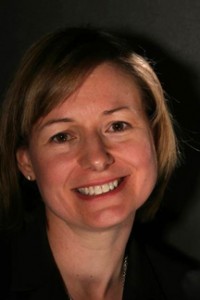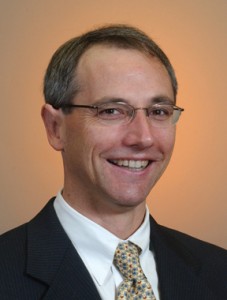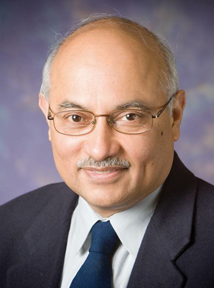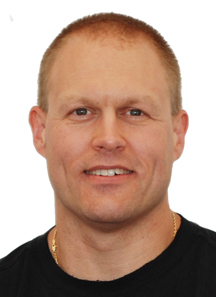Each year the Department of Electrical and Computer Engineering, in conjunction with the Information Infrastructure Institute (iCUBE), presents a Distinguished Lecture Series, which brings prominent researchers in the electrical, computer, and software engineering fields to campus. All lectures take place from 1:10 to 2 p.m. at the Alliant Energy-Lee Liu Auditorium in Howe Hall.
Videos from the 2009-10 Distinguished Lecture Series are available to ISU students, faculty, and staff for educational purposes only. To obtain access to the videos, e-mail the department’s Communications Specialist or stop by 2215 Coover Hall.

September 21
EMOTIONAL INTELLIGENCE TECHNOLOGY AND AUTISM
Rosalind Picard, Director of the Affective Computing Group and Autism and Communication Technology Initiative, Massachusetts Institute of Technology
Abstract: Skills of emotional intelligence include the ability to recognize and respond appropriately to another person’s emotion, and the ability to know when (not) to display emotion. This talk will demonstrate advances at MIT aimed at giving several of these skills to technology, including mobile devices, robots, agents, and wearable and traditional computers. I will present live demonstrations of current technology, including a system developed with Rana el Kaliouby to recognize cognitive-affective states in real-time from a person’s head and facial movements. This technology computes probabilities that a person looks like he or she is concentrating, interested, agreeing, disagreeing, confused, or thinking. These states signal important information such as when is a good time to interrupt, or when it might be appropriate to apologize for interrupting. A wearable version of this system is being developed for helping people who face challenges in reading real-time social-emotional cues. I will describe several other new affective technologies that facilitate emotion measurement and communication, and describe applications in autism.
Speaker biography: Rosalind Picard is founder and director of the Affective Computing Research Group, and co-founder and director of the Autism and Communication Technology Initiative at the MIT Media Laboratory. After receiving a bachelor’s degree in electrical engineering with highest honors from Georgia Tech, Picard joined AT&T Bell Labs where she contributed to the design of the DSP16 chip and developed new algorithms and architectures for image compression. Picard earned master’s and doctorate degrees in electrical engineering and computer science from MIT, and joined the MIT faculty in 1991. At MIT, she pioneered research on content-based retrieval of image and video, contributing to the Photobook system and introducing the use of new mathematical models and semantic descriptions such as Wold features. In 1997, she authored the book Affective Computing, laying the foundation for a new field of research giving computers skills of emotional intelligence. Picard led the world’s first research group focused on creating technology to recognize, interpret, and respond empathetically to emotion in multiple modalities, including physiology, face, posture, and task behavior. Applications of her research include autism, health, fitness, education, usability, marketing, and customer service.
*Presented in conjunction with the Women in HCI Lecture Series

October 15
THE SEVEN WONDERS OF COMPUTER ARITHMETIC
Earl Swartzlander, Professor of Electrical and Computer Engineering, University of Texas at Austin
Abstract: There are many seminal concepts in computer arithmetic that collectively enable the achievement of incredibly high levels of performance in current computers. In this seminar, seven key concepts are identified. They include the twos complement number system, carry lookahead adders, Booth multipliers, Wallace multipliers, Newton-Raphson and Goldschmidt iterative dividers, and the IEEE Standard for floating-point arithmetic.
Although some of these ideas are relatively new (for example, carry lookahead adders, Booth multipliers, Wallace multipliers, and Goldschmidt dividers date from the 1950s) while others (the twos complement number system and the Newton-Raphson dividers can be traced back to hundreds of years ago). Finally, the IEEE Standard is a political accomplishment as much as a technical wonder.
Speaker biography: Earl E. Swartzlander, Jr., is a professor of electrical and computer engineering at the University of Texas at Austin. Previously, he worked at TRW Defense and Space Systems (1975 to 1990), where he most recently was the director of independent research and development for the TRW Defense Systems Group. His research interests are in application-specific processor design and the interaction between VLSI technology and computer architecture. These areas involve computer arithmetic, VLSI development, and digital signal processor implementation.
He is the author or coauthor of more than 60 refereed journal papers, 250 refereed conference papers, 30 book chapters, and one book. He has edited seven books. He is currently the hardware area editor for ACM Computing Reviews. Previously, he was an associate editor of the IEEE Transactions on Computers, IEEE Transactions on Knowledge and Data Engineering, and IEEE Journal of Solid-State Circuits, as well as the editor-in-chief of the IEEE Transactions on Computers and the founding editor-in-chief of the Journal of VLSI Signal Processing.
He has been a member of the Board of Governors of the IEEE Computer Society, IEEE Signal Processing Society, and IEEE Solid-State Circuits Society. He also has been a member of the IEEE History Committee and IEEE Fellows Committee, and currently is the chair of the IEEE James H. Mulligan, Jr., Education Medal Committee.
Swartzlander is a Fellow of IEEE and is a registered professional engineer. He obtained his doctorate in electrical engineering with the support of a Howard Hughes Doctoral Fellowship. He has been recognized as an Outstanding Electrical Engineer and a Distinguished Engineering Alumnus of Purdue University, and a Distinguished Engineering Alumnus of the University of Colorado. He was awarded the IEEE Computer Society’s Golden Core Award and IEEE’s Third Millennium Medal.

November 16
WIND AND ENERGY MARKETS: A CASE STUDY OF TEXAS
Ross Baldick, Professor of Electrical and Computer Engineering, University of Texas at Austin
Abstract: Many jurisdictions worldwide are greatly increasing the amount of wind production they use, with the expectation that increasing renewables will reduce greenhouse emissions. In this lecture, I will discuss the interaction of increasing wind, transmission constraints, renewable credits, wind and demand correlation, intermittency, and electricity market prices using the particular example of the Electric Reliability Council of Texas (ERCOT) market.
Speaker biography: Ross Baldick is a professor of electrical and computer engineering at the University of Texas at Austin. He received his B.Sc. and B.E. degrees from the University of Sydney, Australia, and his master’s degree and PhD from the University of California, Berkeley. From 1991 to 1992 he was a postdoctoral fellow at the Lawrence Berkeley Laboratory. In 1992 and 1993 he was an assistant professor at Worcester Polytechnic Institute. Baldick has published more than 40 refereed journal articles and has research interests in a number of areas in electric power. His current research involves optimization and economic theory applied to electric power system operations, the public policy and technical issues associated with electric transmission under deregulation, and the robustness of the electricity system to terrorist interdiction. He recently completed a textbook based on a graduate class, “Optimization of Engineering Systems,” that he teaches at the University of Texas. He also teaches a three-day short-course “Introduction to Electric Power for Legal, Accounting, and Regulatory Professionals” and a one-day short-course “Locational Marginal Pricing” for nontechnical professionals in the electricity industry. He is an editor of IEEE Transactions on Power Systems and the chairman of the System Economics Sub-Committee of the IEEE Power Engineering Society Power Systems Analysis, Computation, and Economics Committee. Baldick is a Fellow of IEEE.

February 12
TOWARDS A SYSTEM THEORETIC FOUNDATION FOR CONTROL OVER NETWORKS
P. R. Kumar, Franklin W. Woeltge Professor of Electrical and Computer Engineering, University of Illinois at Urbana-Champaign
Abstract: We address several issues that are important for developing a comprehensive understanding of the problems of control over networks. Proceeding from bottom to top, we describe theoretical frameworks to study the following issues, and present some answers:
- Network information theory: Are there limits to information transfer over wireless networks? How should nodes in a network cooperate to achieve information transfer?
- In-network information processing: How should data from distributed sensors be fused over a wireless network? Can one classify functions of sensor data vis-à-vis how difficult they are to compute over a wireless network?
- Real-time scheduling over wireless networks: How should packets with hard deadlines be scheduled for transmission over unreliable nodes? What QoS guarantees can be provided with respect to latencies and throughputs?
- Clock synchronization over wireless networks: What are the ultimate limits to synchronization error? How should clocks be synchronized?
- System-level guarantees in networked control: How can one provide overall guarantees on of networked control systems that take into account hybrid behavior, real-time interactions, and distributed aspects?
- Abstractions and architecture: What are appropriate abstractions, and what is an appropriate architecture, to simplify networked control system design and deployment?
Speaker biography: P. R. Kumar obtained his bachelor’s degree in electrical engineering from Indian Institute of Technology, Madras, in 1973, and his master’s and D.Sc. degrees in systems science and mathematics from Washington University, St. Louis, in 1975 and 1977, respectively. From 1977 to 1984, he was a faculty member in the University of Maryland Baltimore County’s Department of Mathematics. Since 1985 he has been at the University of Illinois at Urbana-Champaign. He currently is the Franklin W. Woeltge Professor of Electrical and Computer Engineering, a research professor in the Coordinated Science Laboratory and in the Information Trust Institute, and affiliate professor of the Department of Computer Science.
He has worked on problems in game theory, adaptive control, stochastic systems, simulated annealing, neural networks, machine learning, queueing networks, manufacturing systems, scheduling, and wafer fabrication plants. His current research interests are in wireless networks, sensor networks, and networked embedded control systems. He has received the American Automatic Control Council ‘s Donald P. Eckman Award, IEEE Field Award in Control Systems, and IEEE Communications Society’s Fred W. Ellersick Prize. He is a Fellow of IEEE and member of the U.S. National Academy of Engineering. He was awarded an honorary doctorate by the Swiss Federal Institute of Technology, Zurich, in 2008.

March 12
BETTER ARCHITECTURE AND NEW SECURITY APPLICATIONS FOR COARSE NETWORK MONITORING
Michael Reiter, Lawrence M. Slifkin Distinguished Professor, Department of Computer Science, University of North Carolina at Chapel Hill
Abstract: Busy networks today cannot afford to log all traffic traversing them, and consequently many network-monitoring applications make due with coarse traffic summaries. In this talk, we will describe an approach we have developed to improve the fidelity of these traffic summaries, by coordinating the monitoring performed by the network’s routers so as to achieve network-wide monitoring goals while respecting each router’s processing constraints. We also will describe our use of traffic summaries to detect a variety of stealthy network abuses (e.g., file-sharing traffic masquerading on other application ports, “hit-list” scans and malware propagation, data exfiltration by spyware, and botnet command-and-control) and even to identify the origin of epidemic malware spreads.
Speaker biography: Michael Reiter is the Lawrence M. Slifkin Distinguished Professor in the Department of Computer Science at the University of North Carolina at Chapel Hill (UNC). He received his bachelor’s degree in mathematical sciences from UNC in 1989, and master’s and PhD degrees in computer science from Cornell University in 1991 and 1993, respectively. He joined AT&T Bell Labs in 1993 and became a founding member of AT&T Labs – Research when NCR and Lucent Technologies (including Bell Labs) were split away from AT&T in 1996. He then returned to Bell Labs in 1998 as director of secure systems research. In 2001, he joined Carnegie Mellon University as a professor of electrical and computer engineering and computer science, where he was also the founding technical director of CyLab. He joined the UNC faculty in 2007.
Reiter’s research interests include all areas of computer and communications security and distributed computing. He regularly publishes and serves on conference organizing committees in these fields, and has served as program chair for the flagship computer security conferences of the IEEE, the ACM, and the Internet Society. He presently serves on the editorial board of Communications of the ACM, and has previously served as editor-in-chief of ACM Transactions on Information and System Security and on the editorial boards of IEEE Transactions on Software Engineering, IEEE Transactions on Dependable and Secure Computing, and the International Journal of Information Security. He currently serves on the Board of Visitors for the Software Engineering and on the Emerging Technology and Research Advisory Committee for the U.S. Department of Commerce. Reiter was named an ACM Fellow in 2008.
*Presented in conjuction with the Department of Computer Science